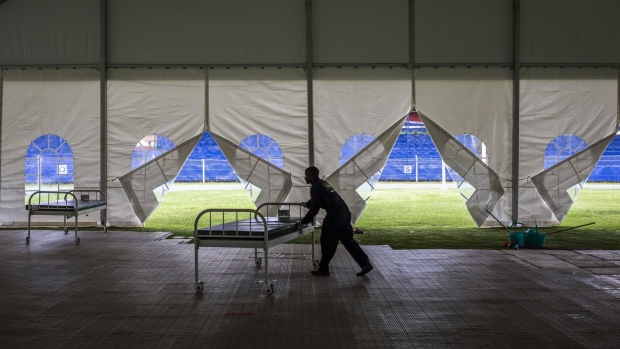Aug 5, 2022
Africa's World-Beating Progress on Healthy Life Expectancy is Under Threat
, Bloomberg News

(Bloomberg) -- Gains in the number of years Africans are in good health may be jeopardized by the resurgence of infectious diseases and as the Covid-19 pandemic has limited access to care, according to the World Health Organization.
Healthy life expectancy on the continent grew by an average of 10 years per person between 2000 and 2019 to 56 years-old, a WHO report showed. This increase was the biggest of any region globally in the period. While the world average is 64 years-old, the gains made in Africa were double that of the global average.
While preventing and treating infectious diseases were the biggest drivers in the almost 20 years of improvements, Covid-19 disruptions and a lack of health services targeting increasing cases of hypertension, diabetes and other noncommunicable diseases is a risk, the WHO said in the report.
“The sharp rise in healthy life expectancy during the past two decades is a testament to the region’s drive for improved health,” said Matshidiso Moeti, the WHO’s regional director for Africa. “But the progress must not stall. Unless countries enhance measures against the threat of cancer and other noncommunicable diseases, the health gains could be jeopardized.”
Africa is dealing with several significant disease outbreaks in addition to Covid-19, including monkeypox, the Marburg virus, Lassa fever, cholera, measles and wild polio, putting additional strain on often limited resources.
Sub-Saharan Africa is also home to about 70% of the total number of people globally infected with HIV, which causes the immune disease AIDS. Deaths from malaria, the mosquito-borne disease that killed almost half a million African children in 2020, is rising for the first time in three years. Total annual cancer deaths in sub-Saharan Africa may reach 1 million, nearly double their 2020 levels, in the next eight years, according to a report from the Lancet Oncology Commission.
African countries, on average, reported more pandemic-related essential service disruptions than other part of the world, with routine immunizations, treatment of tropical diseases and nutrition services facing the biggest interference, WHO said.
©2022 Bloomberg L.P.






